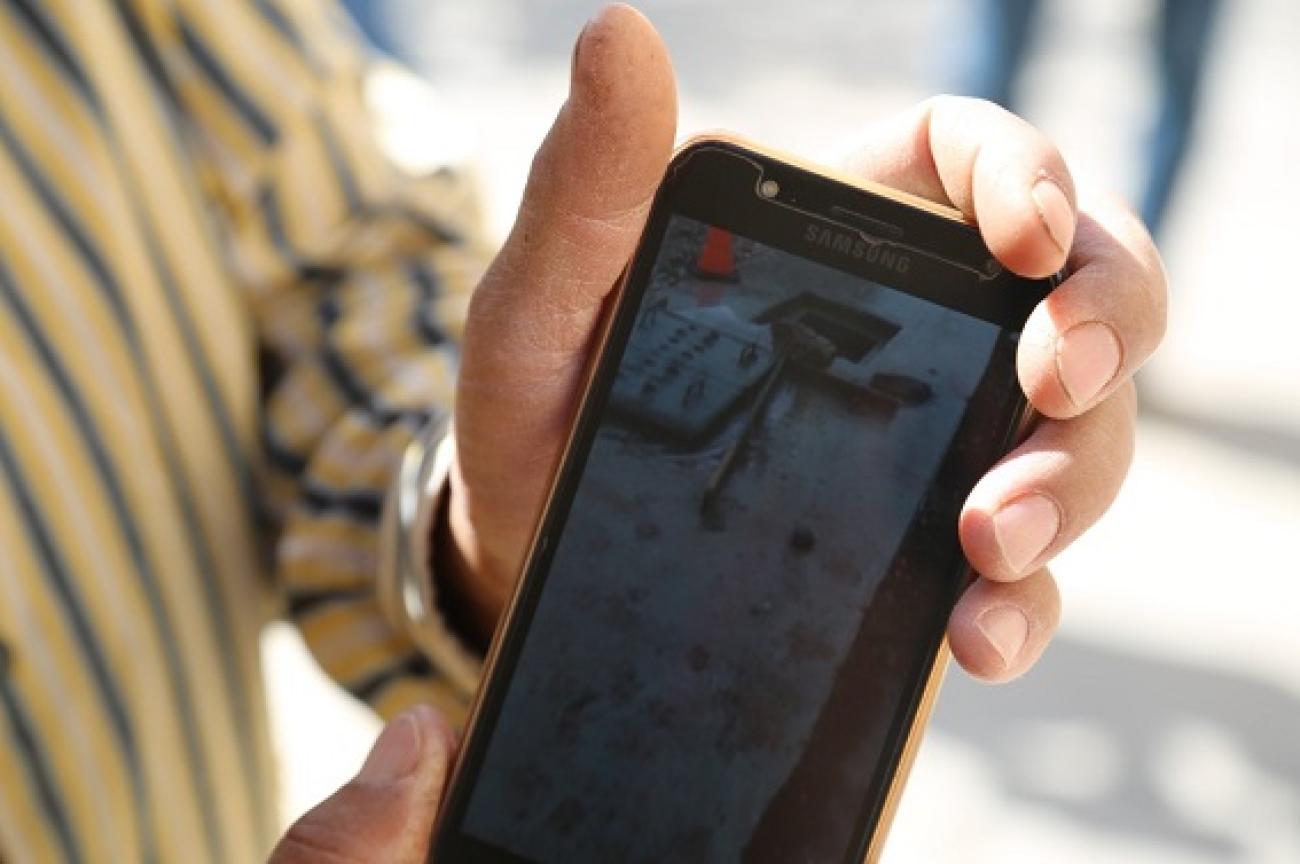In 2018, a storm named Norma hit Lebanon. Heavy rains, high winds and freezing-cold temperatures were reported across the country. The people we met on our visit to Majdal Anjar were particularly hard-hit; rainwater invaded their homes, businesses and cars.
In response to pressing local needs, The World Food Programme (WFP) in collaboration with World Vision launched a project to construct a stormwater drainage canal to support the residents of Majdal Anjar and neighbouring areas in avoiding another catastrophe.
The project helped build a productive community asset, while at the same time Syrian refugees and vulnerable Lebanese were able to secure their basic food needs through short-term opportunities.
Based on the number of hours worked, participants received a cash transfer in return for their participation. Each month their e-cards were topped up and they could buy food in over 460 shops or withdraw cash at ATMs across Lebanon. The cashflow also boosted local businesses.
A couple of days before Lebanon’s first 2020 rainfall, we sat down with Bachir and Saleh who were born and raised in Majdal Anjar to learn more about the situation of this Bekaai town before and after the canal.
“Before 2018, all we’d see is an avalanche of water coming from nearby villages towards our houses and neighborhoods,” says Saleh Hussein who lives in Majdel Anjar and owns a pharmacy there. “Our city is at a lower point compared to nearby areas with higher altitudes,” he adds, explaining how water used to flood streets and put life on hold.
Saleh also recalls the period when rainwater got through his pharmacy’s door. “A lot of the medicine I sell got ruined,” he says. “This has led to loss of income and lead me to rearrange the design of my entire shop.”
Projects like this one also target people living in rural areas so that their communities benefit from the creation and rehabilitation of assets that build social cohesion, improve living conditions and stimulate economic opportunities along the way.
“I was introduced to an entire new set of skills,” says Bachir Nisbyan one of 163 participants in this project. “Last year’s storms passed like a breeze,” he adds describing how life continued normally for the residents of Majdal Anjar and neighbouring areas as the country faced numerous severe storms.
This project also boosted the technical skills of participants and included training on excavation, concrete formwork, concrete mixing and backfilling. Participants are now equipped with vital skills that can be used to generate income beyond the period of the project.
“In addition to protecting businesses from floods and supporting vulnerable households, this project supports farmers and their lands,” says Dana Kanaan WFP Lebanon’s Livelihoods Programme Policy Officer. “The community’s improved water management means that channelled water can be used for irrigation — there is less loss of fertile soil and erosion, with reduced damage to orchards during heavy seasonal flooding.”
WFP Lebanon’s livelihoods projects like this one are financed by Germany’s Federal Ministry of Economic Cooperation and Development.










